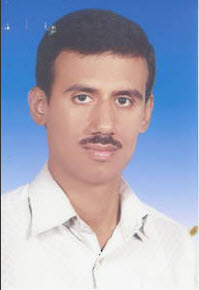Sameh Mahrous, a journalist with the State-owned daily al-Gomhouriya, came to me carrying a complaint so bitter it is almost impossible to believe. But worse, it documents—thus makes it imperative to believe—a level of appalling official irresponsibility. Mr Mahrous has raised his complaint to the Interior Minister Habib al-Adly and prosecutor-general Abdel-Meguid Mahmoud, demanding justice.
When the police is the abuser
Youseef Sidhom
Opinion
00:09
Sunday ,26 September 2010

The complaint reads as follows:
“On Sunday 15 August 2010 at 6:00pm my mother was hit by a white truck as she attempted to cross the Delta road at the town of Qaha in Qalyubiya, north of Cairo. It was a hit-and-run case; the truck driver hit my mother and drove away at full speed in the direction of Cairo. My mother lay bleeding on the road; her cries and those of my sister, who was accompanying her, brought many passers-by to the scene. They quickly called an ambulance while word reached the police station which is only some 30 metres away. Captain E.D hurried to the scene but, instead of allowing the ambulance—which had arrived in the matter of a few minutes—to reach my mother, he blocked the road on the pretext that he needed to complete his field report on the accident. My sister’s cries, and those of the crowd which had already gathered, for him to let the ambulance through to save Mother’s life fell on deaf ears. The ambulance was not allowed through till after some 50 minutes, and then it was not to the spot where my mother lay, broken and bleeding, but on the opposite side of the road. This meant my mother had to be carried across the road to the ambulance. The ambulance rushed her to Qaha Central Hospital but, before she could be taken in, the Captain who had already reached the place blocked the way to the emergency entrance and ordered the workers to carry the woman to the morgue. When my sister protested, he shouted at her: “Your mother is dead”. My sister and brother—who had by that time arrived—pleaded with him to allow the ambulance to carry Mother to the near-by Nasser Institute Hospital where more professional care is available, but he cruelly refused. Before anyone could stop him, my brother dashed by and carried her into his private car and rushed her himself to Nasser’s; by the time they got her there it was a full two hours after the accident. There the doctors did what they could to save her life, but it was too late; she did not survive.
“The enormity of the calamity and the urgency to save the life of a woman who lay between life and death had seized the full attention of the friends who were present at the scene. But several who had been on the site of the accident gave the police officer the licence plate number and specifications of the truck that had hit my mother and asked him to issue orders that it should be stopped and its driver caught. The driver was driving the truck with a shattered windshield, which should have made it even easier to spot. But Captain E.D never did anything to have the driver caught. It defies understanding why, disdaining the basic urgency to save a human life, turning a deaf ear to the pleas of a daughter to rescue her mother, and throwing to the wind the duty of having a culprit caught, the police officer behaved as he did. His steadfast effort to just have his report ready defies all reason and strongly points at some sort of collaboration with the culprit.”
The documents presented by Mr Mahrous indicate violations even worse than those cited in his complaint. The police officer’s report involves contradictions which expose breach of duty and efforts to cover up facts. I took my time to write about this complaint in hope that an official investigation would be conducted and justice would take its course. However, a few remarks which ought not to go unnoticed remain to be highlighted.
What awesome power wielded by a police captain can hold an ambulance for 50 minutes from saving a human life? And what reason could there be for the submission of the ambulance workers to the arrogant tyranny of a police officer who kept them from fulfilling their duty of saving a life? Should not they be taken to account?
By what authority can a police officer order hospital workers to take a victim of a road accident into the morgue? And again, why should the workers submit to his authority—if it were not for the quick intervention of the victim’s children?
Will the officer and his superiors of the Qalyubiya security apparatus be taken to account for failing to catch the culprit driver? Did they even attempt to do so?
The incident goes beyond the individual tragedy, and highlights the runaway authority of the police and the gross failure to fulfil their duty. Will the results of a fair investigation be publicised so that Egyptians may be assured the police in its entirety is innocent of allegations of corruption and brutality? Or will the matter be obscured and the violator allowed to get away with his deed in order for the police to allegedly ‘save face’?



